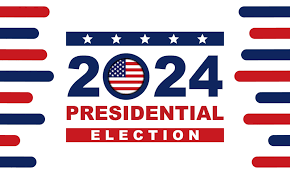The 2023 Xi-Biden Meeting: A Summary of the Discussions and Future Trends
The high-profile meeting between China’s President Xi Jinping and US President Joe Biden and their respective teams succeeded in its attempts to show where the real global power lies – pushing Israel, Ukraine, and Donald Trump way out of the headlines, although the Taiwan issue remains on the table. That will suit Joe Biden just fine as he looks to re-establish his credentials as a viable President, and Xi continues his march to show off China as an emerging market champion. I discuss the underlying issues at stake.
2024 US Presidential Elections

In truth, Xi probably did Biden a favour by attending the APEC meeting – Biden’s popularity levels in the US are low, and the majority of US voters feel that at 81, he is too old to secure another term as President. Donald Trump, while his polls as a Presidential Candidate remain high, is mired in legal and court proceedings. Biden ‘trumped’ him with the only card he can play – it is the current President who gets to meet world leaders who matter and not former Presidents. The meeting with Xi will have gone a long way to reassuring the American public that Joe Biden remains a political force.
Taiwan

However, it will have come with a price, and beyond Taiwan. The underlying friction between the US, China and Taiwan has been sovereignty, and calls for independence for the island. That subject, regarded as a red line by Beijing, has receded somewhat as handily, just prior to the US and China meeting, Taiwanese media announced a deal between the two Presidential candidates there – elections are to be held in January – and which increases the chances that a pro-Beijing candidate wins. That should be enough to smooth the China-Taiwan issue, at least for another four years. This too, will also be something of a relief for Biden, already caught up in two nasty conflicts in the Middle East and Ukraine. He will not have wanted to on-board a third.
So, far, two-nil to Xi.
Fentanyl

At this point, Xi provided a gift, in agreeing to limit the amount of Fentanyl that China sends to Mexico, where it is used to manufacture highly addictive drugs, which are then exported by Mexican drug cartels to the US. Fentanyl’s abuse and infiltration into American-based drug mafia networks have rendered a major problem – 150 US addicts die daily from Fentanyl overdoses, with San Francisco, ironically as that is where APEC is being held, a major centre of abuse.
Fentanyl is a legitimate drug, and is used to treat acute (short term), severe pain caused by major trauma or surgery, as well as for chronic pain caused by cancer. With apparently larger quantities than needed for normal surgical and after care usage being exported to Mexico; Xi is arranging to stop it. Now that is an advantage of the State being involved in production and supply chains, a point sometimes lost on the Americans who suggest free trade is all about supply and demand and have been unable to take care of their own drug problem. Three-nil to Xi?
Having therefore sorted out their bilateral problems: Biden as a viable next President, a pro-Beijing Taiwan, and America’s Fentanyl problem, the two men and their advisors will have discussed Israel and Palestine, and Russia-Ukraine.
While these are different conflicts, the two sides have different opinions concerning them. However, there is one uniting factor – the desire for Xi to be seen as a truly global statesman, and China as a force for good. Achieving that requires two further actions: Washington spending more time listening what Beijing has to say, and a shift in the public approach towards China, which for the past five years has been largely negative. These are longer-term, perhaps intangible goals, but will fit in with China’s more considered approach. So, what does this mean?
Palestine

With Israel and Palestine, the United States and the West in general have tied themselves in knots, seemingly unable to control Israeli anger at the Hamas attacks. The resulting military campaign in Gaza has been excessive, with Tel Aviv dangerously rejecting even the United Nations as an arbitrator. Clearly, Benjamin Netanyahu has inflicted extraordinary political and goodwill damage on his country. Reining him in will require joint efforts. Finding a longer-term, viable two-state solution – one always discussed by Washington, but fully endorsed by Beijing, will also require skilful politics. Beijing will want to be seen very much as part of that process. Xi Jinping as a global statesman and Beijing providing mediation will be very much on the agenda. Curiously, that also allows Biden to concentrate on his 2024 election campaign rather than continually having to deal with Israel. I predict a gradual process of Beijing being globally seen as more active in this conflict in terms of bringing peace – and negotiating a solution.
Ukraine

In terms of Ukraine, it was noticeable that prior to Biden and Xi meeting, the White House issued a statement saying that there was ‘no evidence’ that China had been supplying Russia with weapons. That is quite a political climbdown after months of media reports and US analysts suggesting that they were. Xi and Vladimir Putin are close; Xi met with him just last month in Beijing where the Russian President attended the 3rd Belt & Road Initiative forum. With the Russia-Ukraine conflict now in a form of stalemate, and the West beginning to tire of the expense a solution is required. Again, Xi Jinping and Beijing could step in, perhaps in tandem with Washington and Brussels, to persuade Zelensky that enough is enough and that peace is required. There is also growing disquiet concerning the current Ukrainian President, with Presidential elections due to be held early next year, but indefinitely postponed as Zelensky has enacted martial laws that override the need to hold them. It is possible another candidate is emerging, with some divisions between Zelensky appearing between his thinking and that of the Ukrainian military. Pressure is on Zelensky to permit elections. If not, there could be a coup. That would bring in almost immediate peace talks and reengage full discussions between Russia, Europe and the United States as concerns a future European Security Agreement. Beijing, with its supply chains extending deep into Europe, wants the conflict to end. It may also find itself at one of the top seats in the negotiating table and a power-broker in how the Ukraine situation evolves. All these are closed-door discussions, however, it would represent a something of a coup for Xi if China were part of a peace formula process, and ultimately re-open doors for China-EU trade.
Sanctions would be likely to remain in place upon Russia, but Putin has already absorbed those and Russia has already turned its face to Asia. That means the West can be seen to maintain their anti-Russian disapproval for some time, while allowing Ukraine to rebuild. Xi will be keen to be part of that process.
US-China Trade

I do not, however, apart from a lessening of US government and media criticism of China, see much happening in terms of loosening up trade relations. At present, the two countries are engaged in a struggle for technological superiority, and this will take precedence over any niceties in terms of the United States making any significant concessions to China.
The US export ban on specific technologies was only signed in August, with China anyway apparently more advanced in the development of semiconductors than first thought – the launch of the Huawei Mate 60 pro containing a 5G chip took US analysts by surprise, thinking the technology was beyond China. These types of bans will not be lifted, and in any event Beijing’s longer-term aim is to reduce dependence on American technology, not increase it. The longer goal for China here is self-sufficiency in technological development – probably something for Washington to be more concerned about than Beijing.
There will be a few minor trade concessions made by Washington to express ‘goodwill’; however I do not see any game-changing alterations on the horizon. That said, China remains an attractive consumer market, and despite the general media negativity is still, according to McKinsey, expected to expand its consumer markets, to consumption growth potentially worth US$5 trillion in the period from now to 2030. There are still plenty of opportunities for US companies to fulfil Chinese demand – and both Xi, and Biden, know that.
Chris Devonshire-Ellis is the Chairman of Dezan Shira & Associates. He may be contacted at asia@dezshira.com
Related Reading
- Previous Article China 2023 October Economic Roundup: Retail Sales and Factory Output Exceed Expectations
- Next Article Xi-Biden Meeting: “Productive” Talks Lead to Increased Cooperation in Key Areas








